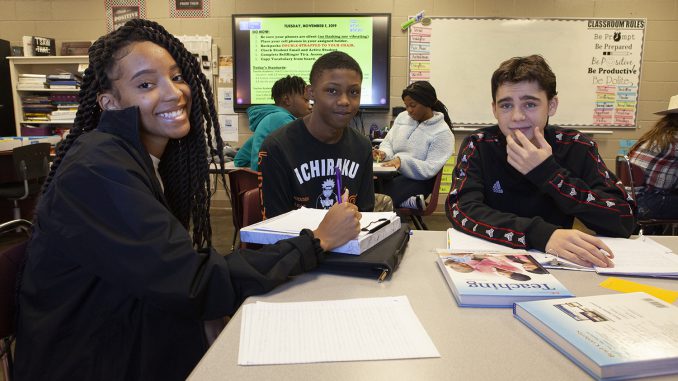
The Southern Regional Education Board (SREB) praised Mississippi for its achievements in education from early childhood through college in its 2020 report on the progress of education in the South.
Mississippi: A Turning Point details where Mississippi stands in education, highlighting how the effective implementation of education policy has improved student achievement statewide and made Mississippi the leader in the South for college persistence.
SREB report highlights for Mississippi:
- Mississippi is the only state in region in which the first-year persistence rate of first-time, full time students at public, 4-year colleges and universities increased from 2012 to 2017, indicating that more first-time, full-time college students returned to college for a second year.
- The high school graduation rate outpaced the region in growth.
- The average state Pell Grant award exceeded the nation and was the highest average award in the region.
- Fourth graders outpaced the region and nation in gains in reading and math achievement at both the Basic and Proficient levels on the National Assessment of Educational Progress (NAEP). For the first time, fourth graders in the state outperformed the nation in reading and math achievement on NAEP at the Basic level or above.
- Eighth graders outpaced the region and nation in gains in reading and math achievement at both the Basic and Proficient levels on NAEP.
- The ninth-grade enrollment increase shrank, indicating that more eighth graders are prepared to make transitions to ninth and then 10th grade.
- The Early Learning Collaboratives meet all 10 quality standards for pre-K, according to the National Institute of Early Education Research (NIEER). Mississippi is one of only four states that meet all NIEER quality standards.
“The 2020 SREB report shows how Mississippi’s research-based education policies are improving student achievement from pre-K through college,” said Dr. Carey Wright, state superintendent of education. “I am incredibly proud of all the hardworking students, educators and school leaders who have made Mississippi a national leader for advancing public education.”
SREB works to improve public education through proven policy and practice in 16 southern states including Alabama, Arkansas, Delaware, Florida, Georgia, Kentucky, Louisiana, Maryland, Mississippi, North Carolina, Oklahoma, South Carolina, Tennessee, Texas, Virginia and West Virginia.
SREB’s annual state progress reports evaluate how well states are educating students and them for the workforce. The 2020 report detailed challenges to SREB states’ efforts to increase the educational attainment of working-age adults in the South, including the large number who lack the credentials they need for success in the workplace.
According to SREB, rapid advancements in automation and artificial intelligence may increasingly displace adults with low levels of education, transforming some positions while eliminating others. Most new jobs — especially ones that pay well — will require education beyond high school. SREB estimates that by 2030, 18 million workers and their children in the South will be unemployable or stuck in low-wage jobs, and in a perpetual cycle of poverty.
The reports urges southern states to take aggressive action to prepare students and adults for the higher-skilled positions of the future so they can remain employed, earn higher incomes, and support the educational progress of future generations.
